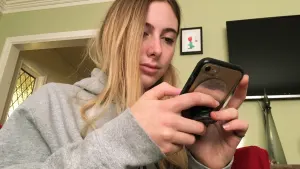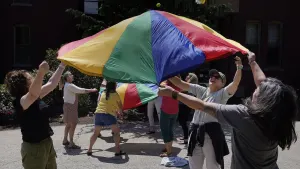More Stories
News 12's Elizabeth Hashagen was joined by Dr. Daniel Griffin this morning to discuss the latest on the COVID-19 pandemic.
Merck & Co. says its experimental COVID-19 pill reduced hospitalizations and deaths by half in people recently infected with the coronavirus. The pharmaceutical company plans to seek Food and Drug Administration emergency use authorization next. It would become the first oral antiviral for COVID-19 if approved.
Researchers say the effectiveness of the Pfizer–BioNtech and Moderna mRNA COVID-19 vaccines lies in their ability to trigger the production of the right antibodies, blood proteins capable of protecting individuals from infection. Whether this protection could pass from mothers to their infants before birth had remained a question.
A study published online Sept. 22 in the American Journal of Obstetrics & Gynecology MFM found that 100% of 36 newborns had protective antibodies at birth when their mothers received either the Pfizer–BioNtech or Moderna COVID-19 vaccine during pregnancy.
Johnson & Johnson announced that a second dose given two months after the first increased the vaccine's effectiveness against symptomatic COVID-19 by about 22 percentage points to 94%.
Key questions remain: How long after an initial Johnson & Johnson injection should a second shot be administered? And would it be better to boost Johnson & Johnson recipients with a shot of Moderna's or Pfizer's vaccine?
A study by the National Institutes of Health suggests that Moderna's vaccine works better as a booster than a second shot of Johnson & Johnson. But that study only measured antibody levels — an indication of the strength of the immune system's response — while Johnson & Johnson's study of a second shot of its own vaccine looked at efficacy data.
Moderna's request for authorization of a booster shot is up next, with a meeting scheduled for Oct. 14, the day before the Johnson & Johnson discussion.
The FDA prepares to make a high-profile decision on whether to authorize emergency use of the Pfizer-BioNTech vaccine for children ages 5 to 11. Pediatric dose depends not just on the strength of the clinical trial data, but on whether the companies can prove to the FDA that they can properly manufacture a new pediatric formulation.
More from News 12
1:28

5 simple steps for long-term benefits to your health and heart
1:32

8 tips for working safely during hot weather
3:31

Guide: Ways to set your child up for financial success
3:18

Guide: The importance of good sleep and how to get it

Guide: Mental health resources available in the tri-state
9:36
